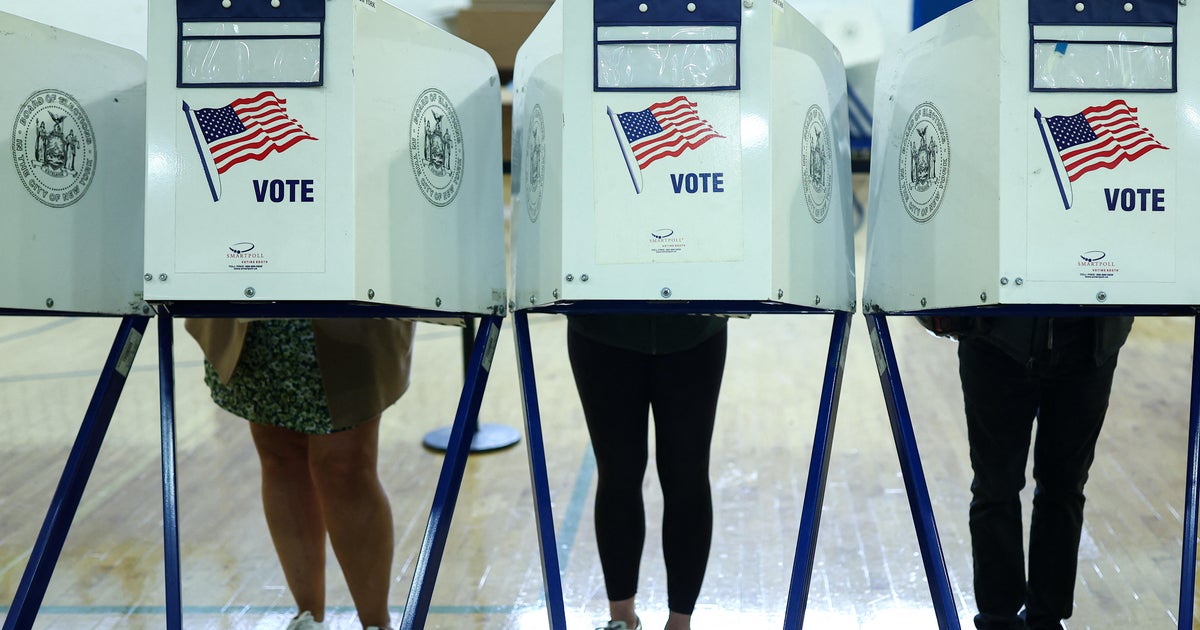With Detroit debate, Democrats plot a comeback in Michigan
Detroit — When Democrats talk about Michigan, they tend to focus less on Hillary Clinton's loss here in 2016 and more on Gov. Gretchen Whitmer's victory in 2018.
Two years after Donald Trump won Michigan by fewer than 11,000 voters, becoming the first Republican to be successful in the Wolverine State in three decades, Democrats won five statewide offices and flipped two congressional seats. Whitmer won nine counties that voted for the president.
The governor's election and other 2018 victories serve as a roadmap for Democrats plotting a comeback in Michigan, a state critical to rebuilding a once steady blue wall in the Midwest that crumbled in 2016.
"In my campaign I hardly ever talked about what's happening in Washington D.C. I talked about how we're going to fix the damn roads, how we clean up drinking water, and ensure people get access to the skills they need to get good paying jobs," Whitmer told CBS News. "Stay focused on the things that really matter. People in Michigan don't care about the president's Twitter feed. We care about feeding our families."
By hosting an early presidential primary debate here, Democrats are sending a clear message that they have learned from the past. "The first lesson people learned was to prioritize the state," says Matt Grossman, Director of the Institute for Public Policy and Social Research at Michigan State University. "This year it will definitely be considered a top tier from the beginning, and the Democrats will not be caught sleeping on Michigan."
But with the president back on the ballot next year, Democrats are trying to figure out what a winning coalition might look like in Michigan. They are debating whether they need a candidate who can reclaim white, working-class voters who switched to Trump in 2016 and have become synonymous with the Midwest or one who can turn out base voters, particularly African-Americans, in the state's urban areas who stayed home in the last presidential race.
The Democrats' focus on Detroit makes a case for an approach that emphasizes increasing turnout in diverse areas. Forty percent of voters in Wayne County are black. Clinton won the county in 2016, but by 76,000 fewer votes than President Obama did in 2012. In Genesee County, which includes Flint, Clinton underperformed Obama by 26,000 votes.
Beyond his strong support from black voters, Obama ran a campaign in Michigan that was uniquely tailored to the state, focused on the auto crisis and the bailout and painting Mitt Romney as part of the corporate elite who contributed to job loss.
"We in African-American communities will determine the destiny of the nation...I will make sure that when we come to communities like Detroit, we just don't talk to people but we invest in those communities," New Jersey Sen. Cory Booker told the NAACP conference in Detroit last week.
"I think there are two things you're talking about: One Donald Trump should not be president, but the second thing is talking about our vision, and talking about an America that works for everyone," Massachusetts Sen. Elizabeth Warren told reporters at the same conference. "That creates education opportunities and career opportunities that doesn't just work for white people but black people as well. That's what my plans are all about."
Vermont Sen. Bernie Sanders won the Michigan primary in 2016, and believes he still has a message that resonates across the state. "I think they're people who had voted for Obama and gave up on political establishment. We need an agenda that says to them, Trump lied to you. He did not provide healthcare to everyone," he told reporters in Detroit last week.
Exit polling in 2018 showed vulnerabilities for Trump's re-election in Michigan, including 56 percent of voters disapproving of him. Turnout in the governor's race in Wayne County increased by 29 percent. And nationwide, turnout among African American voters increased by 11 points compared to the previous midterm.
"Michigan will be Democratic in some years and Republican in some years. I don't think we'll ever make the mistake like we did in 2016 and not turn out again," Whitmer said. "We had record turnout in 2018 and I think we're prime for that this year. But people want to come out for a candidate who they believe in."
After the 2016 election, the state Democratic Party launched "Project 83," a grassroots organizing project in all of the Michigan counties. And the state has taken steps to expand access to the ballot box in 2020.
"We have to be able to walk and chew gum at the same time," Michigan Democratic Party Chair Lavora Barnes told CBS News, arguing that candidates should talk about what they perceived to be failed Trump promises in the Midwest but also focus on what they would do as president. Most critically, she says, candidates have to become familiar to voters here.
"It's great they are here now for these debates, but they need to come back," says Barnes of the 2020 candidates. "And if they don't, it will be to their detriment."
Kabir Khanna contributed to this report




